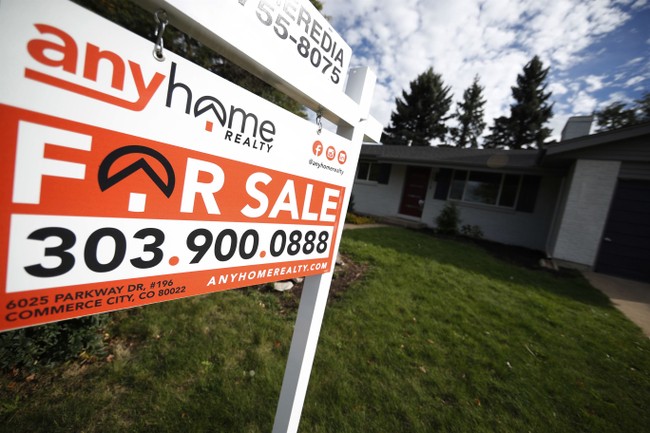
The high cost of housing is a big problem for the presumptive Democrat presidential ticket. Unfortunately, the remedies proposed by Vice President Kamala Harris and Gov. Tim Walz will make things much worse.
It’s obvious why Harris and Walz feel compelled to do something. Inflation raised rental costs and housing prices across the nation during the Biden-Harris administration, while the high interest rates the Federal Reserve imposed to slow the devaluation of the dollar further increased the costs for new homebuyers. Home purchase prices reached record highs this year.
“Home-buying affordability dropped last fall to the lowest level since September 1985, and it fell near that level again in June,” The Wall Street Journal reports. New home sales crashed accordingly, declining by 14.9 percent in May.
Rental prices rose rapidly as well, and much faster than incomes. “Rent has increased by 32.6% over five years, while the median income has increased by only 20.8%,” Yahoo! Finance reported on a study from BadCredit.org.
Unsurprisingly, “Housing costs have emerged as a key concern for Americans as the real estate market contends with the double-whammy of high mortgage rates and a dearth of supply, pushing the cost of owning a [sic] 26% higher than it was in 2020, according to a recent Redfin analysis,” Newsweek reports.
As a result of all this, “Housing is one of the thorniest economic issues facing Harris, with voters naming the cost of rent and high mortgage rates as a growing concern,” The Wall Street Journal reported.
All this trouble and woe could have been avoided easily. The inflation was caused by excessive federal spending and a consequent massive increase in federal debt enacted in 2021 and 2022 by the Biden-Harris administration and Democrat-controlled Congress with no Republican yes votes.
President Biden never considered cutting spending, and Harris was in lockstep with his foolhardy agenda. Instead, in July, Biden called for federal rent control, a $10,000 tax credit for first-time homebuyers, and up to $25,000 for first-generation homebuyers’ down payments.
Harris supported those ideas and is adding to them. On Friday, Harris called for the construction of three million new housing units in the next four years and proposed “the first-ever tax incentive for homebuilders who build starter homes sold to first-time homebuyers,” “a historic expansion of the existing tax incentive for businesses that build rental housing that is affordable,” and $40 billion for local governments to help pay for building of additional “affordable” rental housing (double what Biden had called for).
Harris also proposes “removing key tax benefits for major investors who acquire large numbers of single-family rental homes.”
None of these schemes will lower housing prices or make housing more abundant. For example, consider the proposed removal of the unspecified “tax benefits” for investors who buy single-family homes and rent them out. These investors’ activities do not raise the rents people pay; they increase the supply of rentable properties and thus offset any rise in rental demand created by people who sell their homes for this purpose. Nor can they raise house prices for homebuyers, because homeowners who move to rentals will not be competing for the smaller number of houses for sale.
The proposal will, however, harm homeowners while benefiting renters. To the extent that investors accept the government’s offer, the tax breaks will take money away from homeowners and businesses—through higher taxes and government borrowing—and give it to renters. In addition, that will reduce business investment and make mortgages for homeowners more burdensome in two ways: by lowering their disposable income via the inevitable tax increases and by raising interest rates to monetize the increase in the already unsustainable federal debt. This will make homeownership much less affordable, exactly as happened under the Biden-Harris administration.
Although there are social goods to be had in encouraging people to own their homes, Harris’s proposal will not reduce costs or increase housing inventory as promised.
Meanwhile, economists of all stripes generally agree that rent controls raise rents overall by reducing the stock of leasable housing. Tax breaks for building “affordable” rental housing will not make up for that: there are much easier ways to cut your taxes than by committing to charge low rents for decades to come after getting a tax break today for spending a lot of money to build apartments.
As these examples indicate, governments’ efforts to lower housing costs always end up making housing more expensive and harder to get. The government just takes money from some people, gives it to others, rakes off a bunch of it for bureaucrats and lobbyists, and makes people poorer. Perhaps that is the real purpose of these interventions.
Harris’s one potentially positive proposal is the promise to “cut red tape and needless bureaucracy.” Unfortunately, the federal government’s track record in this regard is abysmal. Moreover, Harris’s intention to uncap the federal deduction for state and local taxes would increase the enormous damage property taxes do to the housing market.
Overall, Harris’s proposed interventions would reduce housing availability and affordability and introduce further massive distortions into the market.
Harris cast the deciding votes on the American Rescue Plan of 2021 and the Inflation Reduction Act of 2022, enacting more than $3 trillion in inflationary excess spending. They would not have become law without her, and we would have avoided the inflation and high interest rates of the Biden-Harris years.
If Harris moves in to the White House, you can expect to pay a lot more for your next house.
S. T. Karnick (https://stkarnick.substack.com/) is a senior fellow at The Heartland Institute and author of the Life, Liberty, Property weekly e-newsletter.

